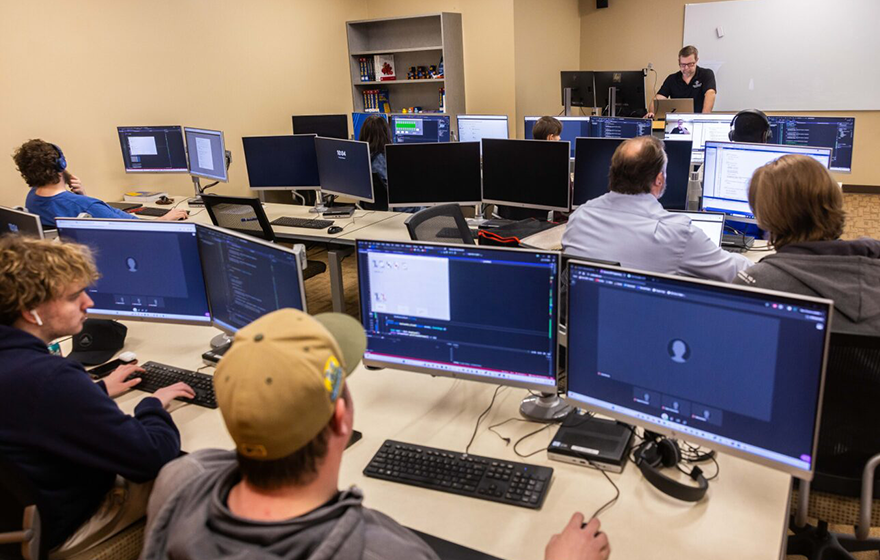Committed Developers vs. In-House Teams: Which Is Right for You?
The choice between making use of committed programmers and preserving an internal group is a considerable one that can affect the trajectory of your projects and total business approach. Alternatively, internal teams add to a cohesive firm society and a nuanced understanding of long-lasting goals.
Recognizing Devoted Developers
The expanding demand for specialized abilities in the technology market has actually caused the emergence of dedicated designers as a practical option for many companies. These professionals are usually contracted on a task basis, allowing companies to utilize certain know-how without the lasting commitment related to full-time hires. Devoted developers are often ingrained within a client's team, giving flexibility and scalability to satisfy task demands.
This version enables companies to access an international ability pool, which is especially useful in a quickly progressing technological landscape. Committed designers can be sourced from numerous geographical locations, making sure that companies can find the right ability at competitive prices. They frequently bring a wealth of experience and knowledge, having worked on varied jobs across various industries.
Moreover, devoted designers can concentrate specifically on the tasks available, improving efficiency and effectiveness. They are outfitted to incorporate flawlessly right into existing operations, collaborating very closely with in-house groups to attain project objectives. This method not just reduces the concern of employment and training but additionally enables organizations to stay nimble, adapting quickly to transforming market needs and technological developments.
Advantages of In-House Teams

Furthermore, internal teams tend to have a much deeper understanding of the firm's mission, values, and goals. This positioning can boost employee engagement and inspiration, as staff member really feel much more connected to their job and the organization's success. Furthermore, having a dedicated in-house team permits better positioning of methods and purposes, as these participants are regularly concentrated on the firm's concerns.
Internal groups also help with quicker decision-making processes, as they can respond a lot more quickly to challenges and changes. The established partnerships and experience with company procedures permit structured process and decreased miscommunication. Inevitably, the combination of a natural society, placement with business objectives, and effective interaction makes internal teams a valuable asset for lots of companies, specifically those seeking to cultivate long-term development and innovation.
Price Considerations
When examining expense considerations, both devoted programmers and internal teams existing distinctive economic ramifications for organizations. Engaging devoted developers generally involves a pay-per-project or hourly price design, which can be affordable for companies with varying project needs. This method enables flexibility in scaling sources up or down, guaranteeing that business only spend for the services they need.
On the other hand, Visit This Link in-house groups involve repaired costs, consisting of salaries, advantages, and overhead costs such as office and devices. While this model supplies greater control and prompt schedule of resources, it might lead to greater long-term expenditures, specifically if the work does not justify a full time staff.
Furthermore, firms should take into consideration the covert prices associated with recruitment and training of internal staff members, which can further strain spending plans. Sometimes, the moment and sources invested in handling an internal group can interfere with the organization's core company goals.

Job Administration and Adaptability
Job administration and flexibility are crucial aspects that influence the choice between internal groups and devoted developers. Dedicated developers typically supply a high degree of flexibility, permitting companies to scale resources up or down based upon task demands. This dexterity can be specifically useful for services experiencing changing workloads or those looking for to innovate rapidly. Devoted teams frequently have actually developed procedures for managing tasks efficiently, leveraging specific methodologies like Agile or Scrum, which assist in repetitive development and adaptability.

Inevitably, the selection between in-house teams and dedicated programmers hinges on the desired level of flexibility and the particular job management requirements. Firms must review their functional characteristics, job complexity, and resource availability to figure out which option aligns ideal with their critical purposes.
Making the Right Selection
Picking the ideal advancement method-- internal teams or devoted designers-- calls for a cautious evaluation of various elements that straighten with a company's tactical goals. software development partner. Think about the nature of the task. Dedicated developers may be extra appropriate if it requires specialized skills or a fast scale-up. Alternatively, in-house teams can supply better continuity and combination with existing personnel.
Next, examine your spending plan. Dedicated designers commonly provide a cost-effective remedy for short-term tasks, while internal teams might incur greater long-term expenses because of salaries, benefits, and overhead costs. Analyze the degree of control and collaboration preferred; internal teams commonly cultivate stronger communication and alignment with company browse around these guys society.
If immediate outcomes are necessary, devoted programmers can be onboarded swiftly, whereas building an internal team takes time for recruitment and training. If constant growth is crucial, spending in an in-house group may yield much better returns over time.
Verdict
To navigate here conclude, the decision between internal groups and dedicated designers depends upon job requirements and business purposes. Committed programmers give flexibility and specialized know-how, making them ideal for temporary initiatives. Conversely, in-house groups cultivate a cohesive culture and deeper alignment with long-term goals. Cautious examination of budget plan constraints, job timelines, and wanted control levels is vital for determining the most appropriate strategy, making certain placement with strategic top priorities and functional effectiveness.
The decision in between using dedicated programmers and preserving an internal group is a considerable one that can influence the trajectory of your jobs and overall organization approach.Task administration and adaptability are important variables that affect the option in between devoted programmers and in-house groups. offshore software development.In contrast, internal groups might stand out in keeping a consistent job monitoring framework due to their knowledge with the company's society and long-lasting objectives. Dedicated designers usually provide an affordable option for temporary jobs, while internal teams may incur greater long-lasting expenditures due to salaries, benefits, and overhead costs.In final thought, the choice in between internal teams and specialized developers hinges on task requirements and business objectives